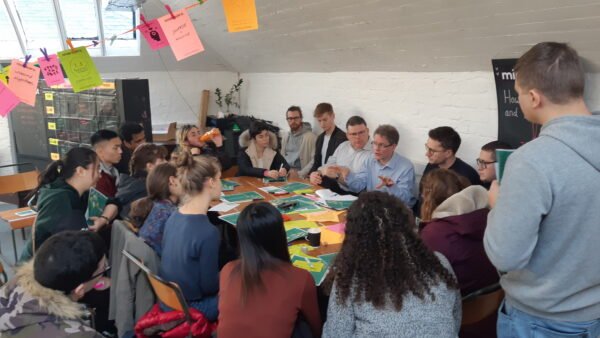We have published a number of newspaper articles, opinion pieces, blog pieces, policy consultancy, academic research, and interviews on our work about responsible debate. These can be found below

Politicians should lead by example on civilised debate – Professor Matthew Chrisman
Negative, critical, angry, partisan, dismissive, evasive. These are just a few of the adjectives used to describe political discussions today, whether on social media, in the news or in parliament. Democratic politics revolves around disagreement and debate. However, politics is increasingly polarised and channels of communication are often undermined. Some politicians seem to be comfortable using derisory, divisive and inflammatory language — some appear to relish it.

Responsible Debate and Quiet Campaigning – Dr Alice König
“At one time I thought campaigning was about speaking with a loud voice, asserting your point and getting people to hear you. But actually, it’s the value of people caring and being kind and just reaching out and connecting and sharing… A lot of campaigning can feel like it’s a megaphone… but being part of a community is probably more important long term.”

Recognising concessions in responsible debate – Peter McColl
My interest in responsible debate is driven by a conviction that we need to be able to agree more as a society, and that must be underpinned by good practice in debate. And the problem of the best lacking all conviction while the worst are full of passionate intensity is one of the fundamental issues I am seeking to address. I am writing this not because I have found the answer, but because I want to explore one of the reasons why I think Yeats’ observation is still so true today. I use the peace process in Northern Ireland, or the North of Ireland, as a worked example below.

Social Media and Responsible Debate – Matthew Chrisman & Peter McColl
The development of social media in the early 2000s seemed to promise increased opportunity for genuine and constructive political debate. In addition to a place to post pictures of our cats and children, platforms such as Facebook and Twitter gave us the opportunity to articulate and refine reasons for and against various public policies and to quickly share our ideas with a large number of people.

Discursive Integrity and Responsible Debate – Matthew Chrisman
his paper articulates a general distinction between two important communicative ideals—expressive sincerity and discursive integrity—and then uses it to analyze problems with political debate in contemporary democracies. In the context of philosophical discussions of different forms of trustworthiness and debates about deliberative democracy, self-knowledge, and moral testimony, the paper develops three arguments for the conclusion that, although expressive sincerity is valuable, we should not ignore discursive integrity in thinking about how to address problems with contemporary political debate. The paper concludes with a brief discussion of a strategy for improving discursive integrity within public political debate by reflecting on which principles of responsible public debate would promote better democratic decision making.



